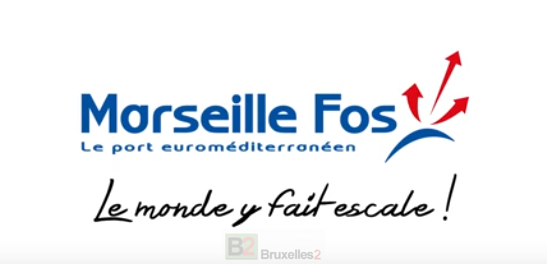The port of Marseille, diversion port for Irini. France commits a new ship to the operation
(B2) It is confirmed. The High Representative of the EU has just announced it. Operation Irini will be able to stop in Marseille in the event of the seizure of suspicious equipment
A diversion port... finally
France has " confirmed, today (Thursday 19.11), the availability of the civil port of Marseille » for the disembarkation of equipment and materials that could be seized by the European military as part of the verification of the international embargo on arms and oil (to or from) Libya. Josep Borrell, the High Representative of the EU, just announced it, fresh out of the meeting of foreign ministers, during the final press conference (by videoconference), which B2 attended.
Diversion of suspect vessels and receipt of materials
Vessels intercepted by the EU maritime operation (EUNAVFOR Med Irini) may therefore be diverted to the port in the south of France. Which is nothing new. This solution had already been implemented as part of Operation Sophia. But it had only been used on one occasion (read: Weapons aboard a Libyan ship. A first entry for Sophia). Arms smuggling was not then the priority of this operation.
A nagging difficulty for several months
For the Irini operation which succeeded it since April, no fallback solution could however be found. This absence had caused a hiccup in September, when an Emirati ship suspected of smuggling military fuel (for aircraft) was intercepted by European ships. It had taken some time, several phone calls between the capitals, and a discussion between ambassadors to find a solution. The ship was circling in the water as it waited. It was ultimately Greece that ended up agreeing to receive the suspect ship (read: A ship suspected of violating the embargo to Libya intercepted by Operation Irini).
A problem solved
The " problem is solved “, as Josep Borrell rejoices. " We now have a clear port to do so »... Although, maybe not quite. Logic would indeed dictate that we have " several ports, some close to the area, others further away “, indicates an expert consulted by B2. This " to maintain operational efficiency (1).
...but other ports needed
In fact, Marseille is not really the closest port to the operational zone (in the central Mediterranean). Operational logic would require us to have a port in Greece, on the eastern side, and another in Italy, as close as possible to Libya, with, in the background, a third port, that of Marseilles. Be that as it may, on the French side, we believe we have " do the job ". The availability of this port also carries behind a whole legal framework. Concretely, it is France (and the Marseille prosecutor) who could find themselves on the front line in the event of sequestration, or even prosecution or incarceration.
(Nicolas Gros-Verheyde)
- The operation command also requested various technical or human resources. It is indeed necessary to provide expertise for the transport, storage or even destruction of boarded cargo, which is often very sensitive.
The French means involved
The force generation conference was also an opportunity for France to specify its offer.
A frigate in the next period
On the operational side, the frigate Latouche Treville completed its rotation on November 7. She didn't not yet detected confirmed an officer. But France has promised to provide a new ship for the operation. Probably for next year. The operation's force generation conference was just held today.
Air resources (Navy, Air) in support
In the meantime, Paris is providing support. That is to say, not permanently integrated into the operation, but able to intervene if necessary. So a " maritime surveillance aircraft Atlantique 2 (ATL2) was deployed and carried out two flights for the benefit of Irini “the previous week, according to the French army staff, questioned by B2. The frigate Aconit was, until a few days ago, in support associated with the operation. From time to time, a Falcon 50 national navy surveillance aircraft or an Air Force Awacs E3-F come to lend a hand to the operation to carry out some reconnaissance flights (Falcon 50) or broader support (Awacs).



